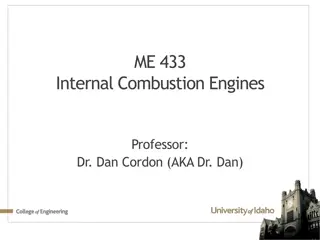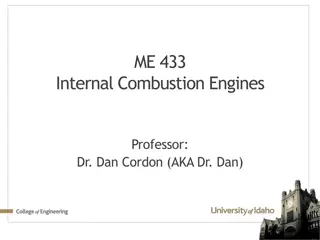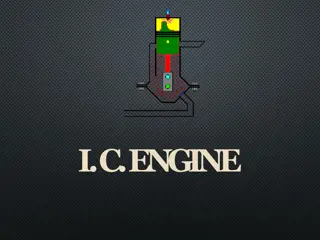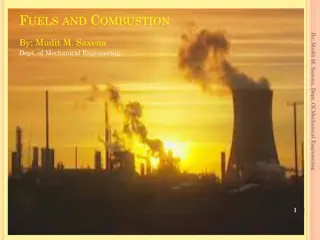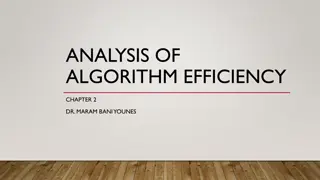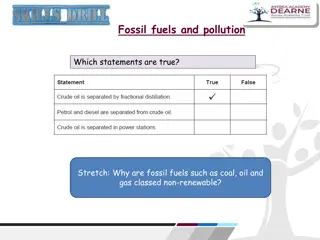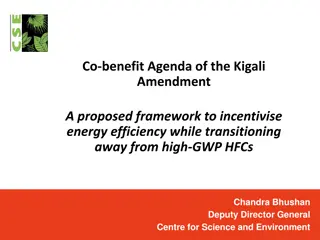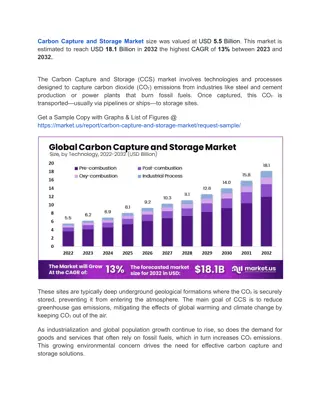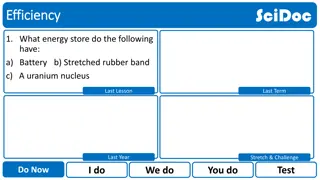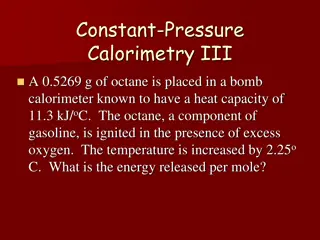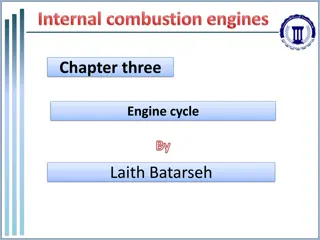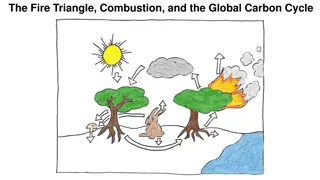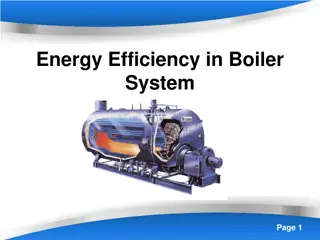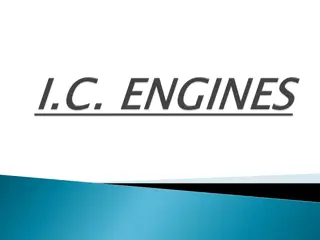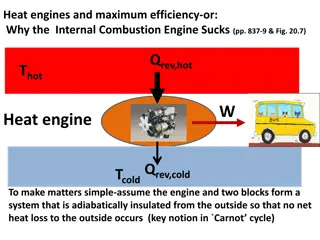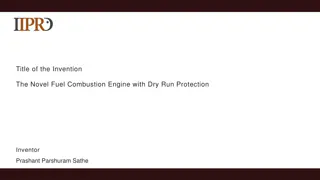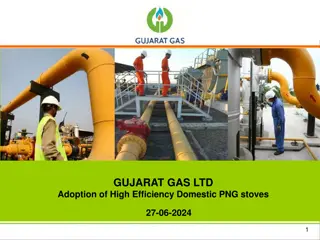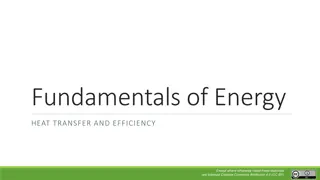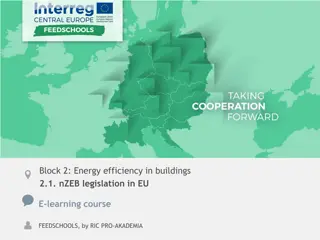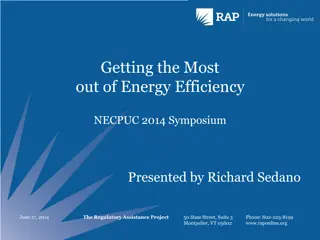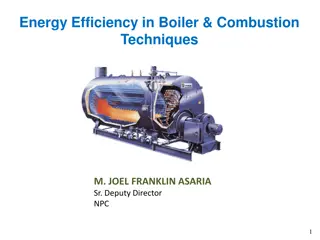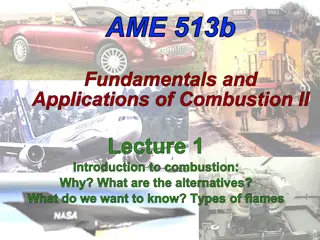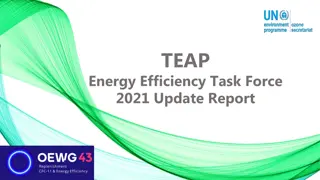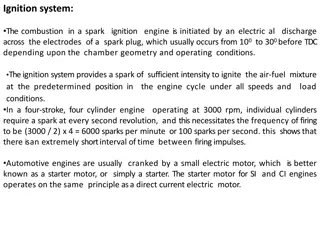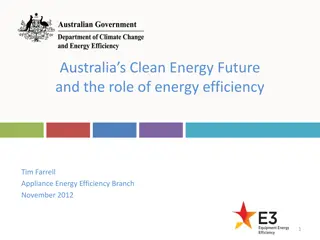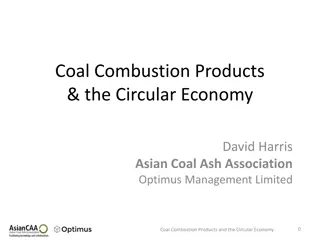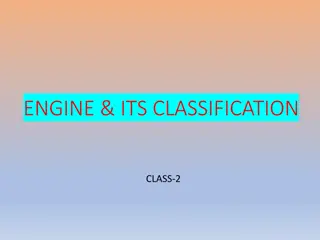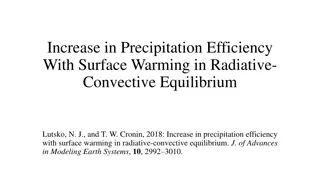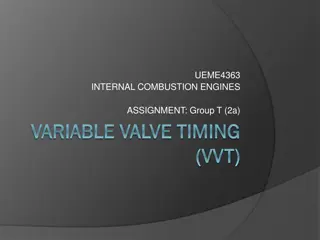Advancements in Hydrogen Combustion for Internal Combustion Engines
Exploring the utilization of hydrogen as a sustainable fuel for internal combustion engines, this research delves into the mixing, combustion, and particulate formation processes in H2ICE. Discussions cover the benefits of hydrogen, challenges faced, and innovative solutions like onboard on-demand h
0 views • 21 slides
Understanding Fuel Chemistry in Internal Combustion Engines
Fuel chemistry knowledge is crucial for internal combustion engines for various reasons such as determining air-fuel ratios, ensuring efficient combustion, preventing detonation, and optimizing power output. Balancing chemical equations, calculating specific volume for mixtures, and analyzing first
10 views • 19 slides
Understanding Mean Effective Pressure in Internal Combustion Engines
Mean Effective Pressure (MEP) is a crucial parameter in internal combustion engines, representing the average pressure exerted on the piston during the power stroke. MEP is relatively consistent for specific engine types, making it a useful predictor of torque output based on engine type and displac
10 views • 20 slides
Understanding Internal Combustion Engines: A Comprehensive Overview
Explore the intricate world of Internal Combustion Engines (I.C. Engine), including their classification, components, terminology, and operation cycles. Delve into the various types, arrangements, and applications of I.C. engines, from automobiles to aircraft engines, and uncover the key principles
1 views • 25 slides
Exploring Fuels and Combustion in Mechanical Engineering
This content delves into the intricate world of fuels and combustion, discussing classifications, properties, and origins of various fuels such as solid, liquid, and gaseous. It covers the importance of desirable fuel properties, caloric values, and the different types of natural and artificial fuel
0 views • 34 slides
Understanding Algorithm Efficiency Analysis
In this chapter, Dr. Maram Bani Younes delves into the analysis of algorithm efficiency, focusing on aspects such as order of growth, best case scenarios, and empirical analysis of time efficiency. The dimensions of generality, simplicity, time efficiency, and space efficiency are explored, with a d
1 views • 28 slides
Understanding Fossil Fuels and Pollution: A Comprehensive Overview
Fossil fuels such as coal, oil, and natural gas are non-renewable energy sources that release heat energy when burned, but also contribute to pollution when not burned completely. This leads to the release of harmful pollutants like carbon dioxide, carbon monoxide, sulfur dioxide, and carbon particu
2 views • 9 slides
Transitioning Towards Energy Efficiency: Co-Benefit Agenda of the Kigali Amendment
The Kigali Amendment proposes a framework to incentivize energy efficiency while phasing out high-GWP HFCs. Reports highlight the urgency to limit global warming to 1.5°C, emphasizing the need for deep emission reductions across all sectors. Investments in low-carbon technologies and energy efficie
0 views • 17 slides
High Costs and Safety Issues Challenge Carbon Capture and Storage Adoption
Carbon Capture and Storage Market By Technology (Pre-combustion, Post-combustion, Oxy-combustion, and Industrial Process), By End-Use Industry (Power Generation, Oil & Gas, and Other End-Use Industries), By Region and Companies \u2013 Industry Segmen
0 views • 4 slides
Thermal Efficiency and Controls in Spray Dryers
Understanding the thermal efficiency and control factors in spray dryers is essential for optimizing drying operations in various industries. Factors such as inlet air temperature, heat exchanger efficiency, and solids content influence the overall efficiency of the drying process. Higher efficiency
0 views • 9 slides
Understanding Energy Efficiency in Devices
Energy efficiency is a crucial concept in understanding how well devices convert energy from one form to another. This summary covers the basics of energy stores, calculation of efficiency, and ways to improve efficiency in devices. Explore the different types of energy stores such as batteries, str
0 views • 15 slides
Understanding Workpapers in Energy Efficiency Programs
Dive into the world of workpapers in energy efficiency programs, covering topics such as workpaper development, deemed energy efficiency measures, the Database of Energy Efficiency Resources (DEER), and the components that make up a workpaper. Explore why workpapers are essential for providing neces
0 views • 119 slides
Understanding Calorimetry and Enthalpy Changes in Chemistry
This content explores various concepts related to calorimetry, enthalpy changes, and Hess's Law in the field of chemistry. It covers topics such as energy released in combustion reactions, heat capacity, phase changes, and the application of Hess's Law in determining enthalpy changes. Enthalpy value
0 views • 17 slides
Understanding Engine Cycle Analysis
The engine cycle analysis delves into the intricate processes within a combustion chamber, simplifying the complex interactions of air, fuel vapor, and exhaust gases. Idealized assumptions help analyze the constant-pressure intake, compression, and expansion strokes, along with the combustion proces
1 views • 48 slides
Efficiency Analysis of Microfinance Institutions in Papua: A Study by Dr. Muneer Babu
Analysis of the performance and efficiency of Microfinance Institutions in Papua New Guinea, focusing on the provision of financial services to the underbanked population. The study evaluates the resource utilization and efficiency of MFIs, comparing less efficient and highly efficient institutions.
0 views • 18 slides
Understanding the Fire Triangle, Combustion, and the Global Carbon Cycle
This series of images explores the concepts of the fire triangle, combustion, and the global carbon cycle. It delves into the role of oxygen, fuel, and heat in combustion processes, leading to the production of carbon dioxide, water, heat, and light. The images further illustrate the chemical proces
1 views • 12 slides
Maximizing Biomass Sector Growth in Namibia through Thermal Processing Technologies
The Namibia Biomass Research Symposium 2023 emphasizes the potential of the Namibian biomass sector in igniting growth through thermal processing of encroacher bush-based biomass. With vast untapped biomass stocks and a focus on thermochemical and direct combustion technologies, the symposium highli
0 views • 12 slides
Understanding Energy Efficiency in Boiler Systems
Learn about the importance of energy efficiency in boiler systems, the different types of boilers, boiler components, major losses in boiler efficiency, methods for assessing efficiency, and calculations using the direct method. Exploring topics such as boiler efficiency, water treatment systems, fu
2 views • 55 slides
Overview of Internal Combustion Engines and Their Components
Internal combustion engines are devices that convert fuel's chemical energy into thermal energy, which is then used to produce mechanical work. The engines can be classified into two types - External Combustion Engines and Internal Combustion Engines. Internal combustion engines include components l
2 views • 53 slides
Understanding Heat Engines and Engine Efficiency
Exploring the concept of heat engines and maximizing efficiency, specifically examining why internal combustion engines have limitations. The discussion covers reversible heat transfer, engine work, efficiency calculations, and practical application to car engines. Insights on temperature differenti
0 views • 4 slides
Understanding Small Gasoline Engine Performance
This chapter explores the intricacies of measuring and optimizing internal combustion engine performance, focusing on calculating functional horsepower through various formulas and measurements. It delves into the combustion process in a small gasoline engine, detailing how the air/fuel mixture igni
0 views • 66 slides
Understanding the Components and Operation of Internal Combustion Engines
Dive into the world of internal combustion engines through a detailed exploration of their classification, key components like cylinders, pistons, crankshafts, and crankcases, as well as the operational principles of four-stroke engines. Discover how these engines work, their construction, and the r
2 views • 103 slides
Novel Fuel Combustion Engine with Dry Run Protection
This invention by Prashant Parshuram Sathe addresses the crucial issue of preventing damage to fuel combustion engine pumps caused by dry running. The innovative mechanism stops fuel flow in the absence of fluid, preventing overheating and damage. Investing in this technology at an early stage offer
0 views • 10 slides
Adoption of High Efficiency PNG Stoves by Gujarat Gas Ltd
Gujarat Gas Ltd is India's largest City Gas Distribution Company operating in multiple states. They have successfully provided uninterrupted services for over 3 decades through a vast network of natural gas pipelines. The company has been promoting the adoption of high-efficiency PNG stoves as a saf
0 views • 7 slides
Understanding the Differences in Smoke Colors - Exploring the Science behind Black, Grey, and White Smoke
Smoke color can vary based on what is being burned, the level of combustion, and various other factors. Black smoke often indicates incomplete combustion of heavy materials, while grey smoke signals the fire settling down. White smoke is common at the start of a fire or with lighter fuels. By studyi
0 views • 11 slides
Understanding Energy Efficiency and Conservation Fundamentals
This unit introduces basic terms related to energy, efficiency, and conservation, covering topics such as Efficiency and Conservation Energy, First and Second Law of Thermodynamics, and various heat transfer mechanisms. It emphasizes responsible energy use, focusing on efficiency, conservation, and
0 views • 14 slides
Understanding EU Legislation and Energy Efficiency in Buildings
This module explores the EU legislation and energy efficiency in buildings with a focus on Nearly Zero Energy Building (nZEB) concepts. It covers the importance of increasing energy efficiency in buildings in the EU, showcasing statistics on energy consumption and CO2 emissions. By improving energy
1 views • 23 slides
Enhancing Energy Efficiency for Sustainable Development
This content covers a symposium on maximizing energy efficiency, presented by Richard Sedano at the NECPUC 2014 event. It introduces the Regulatory Assistance Project (RAP), a non-profit organization aiding government officials in energy and environmental issues with a focus on cost-effective energy
1 views • 27 slides
Energy Efficiency in Boiler & Combustion Techniques
This article discusses energy efficiency in boiler systems and combustion techniques, covering topics such as boiler types, classifications, specifications, and applications. It explains the process of heat generation through fuel combustion, transfer to water for steam production, and highlights va
0 views • 70 slides
Fundamentals of Combustion II - Introduction and Nomenclature
This lecture introduces the fundamentals of combustion by discussing reasons for studying combustion, alternative energy sources, and what we aim to understand. It covers different types of flames and provides a comprehensive nomenclature summary for the course, including various parameters and thei
0 views • 32 slides
Addressing Energy Efficiency in Cooling Sector: 2021 Report Highlights
The 2021 update report from the TEAP Energy Efficiency Task Force emphasizes the critical nature of the climate emergency and the need to transition to lower GWP refrigerants and higher efficiency cooling systems. The report focuses on initiatives to enhance the efficiency of room ACs and refrigerat
0 views • 44 slides
Understanding the Ignition System in Internal Combustion Engines
The ignition system in spark ignition engines initiates combustion through electric discharge across the spark plug electrodes. It ensures proper ignition timing for efficient engine operation at various speeds and loads. Modern ignition systems include battery, magneto, and electronic ignition type
0 views • 21 slides
Enhancing Energy Efficiency in Saudi Arabia: SEEC's Impactful Initiatives
The Saudi Energy Efficiency Center (SEEC) plays a crucial role in improving energy efficiency in Saudi Arabia through strategic programs and initiatives. Established in 2010, SEEC focuses on sectors like transportation, industry, and buildings, with a goal to reduce energy consumption and promote aw
0 views • 29 slides
Australia's Clean Energy Future: Role of Energy Efficiency Programs
The discussion revolves around Australia's clean energy future and the pivotal role of energy efficiency in driving sustainable practices. It covers topics such as the Carbon Pricing Mechanism, Encouraging Energy Efficiency initiatives, and the Equipment Energy Efficiency Program (E3). The success s
0 views • 13 slides
Overview of Korea's Energy Efficiency Programs and Compliance Issues
Korea's energy efficiency programs include mandatory labeling and standards for various products such as refrigerators, air-conditioners, and TVs. The country faces compliance challenges related to adopting the standards of Energy Frontier, which focus on ultra-high efficiency products. Strategies t
0 views • 19 slides
Coal Combustion Products & the Circular Economy - Addressing Resource Flow Challenges
This discussion delves into the intersection of coal combustion products and the circular economy, emphasizing the need for continuous re-evaluation of resource chains, ecosystem metabolisms, and industrial innovations to ensure sustainable environmental practices and economic growth. Exploring the
0 views • 24 slides
Exploring the Ethics of Efficiency in Economics Education
Delve into the intriguing discussion on whether efficiency is ethical in the realms of economics and education. This session, featuring the new Ethics, Economics, and Social Issues curriculum through EconEdLink, analyzes the concept of efficiency through diverse examples and engages participants in
0 views • 26 slides
Understanding Engine Classification and Design
Engine classification involves categorizing engines based on various factors such as combustion type, number of strokes, cylinder design, and ignition method. Common classifications include external and internal combustion engines, as well as categories based on the design and use of the engine. Add
0 views • 11 slides
Increase in Precipitation Efficiency with Surface Warming
The study examines how surface warming affects precipitation efficiency in radiative-convective equilibrium. Various factors influencing precipitation efficiency, such as microphysical processes and climate sensitivity, are discussed. Model experiments are conducted to test the sensitivity of precip
0 views • 33 slides
Understanding Variable Valve Timing (VVT) in Internal Combustion Engines
Variable Valve Timing (VVT) optimizes engine performance by adjusting valve duration, timing, and lift according to engine speed, enhancing torque, power, and fuel efficiency. VVT operates by varying intake valve opening/closing, regulating valve timing, and adjusting lift for better volumetric effi
0 views • 14 slides

